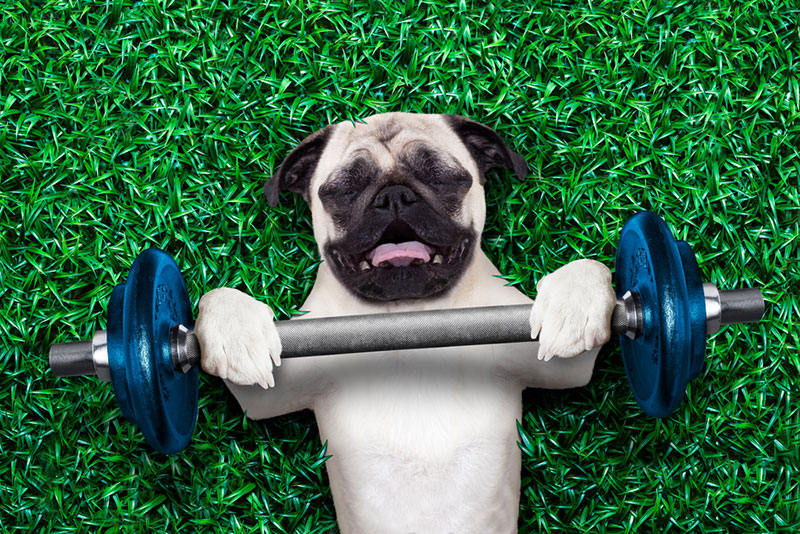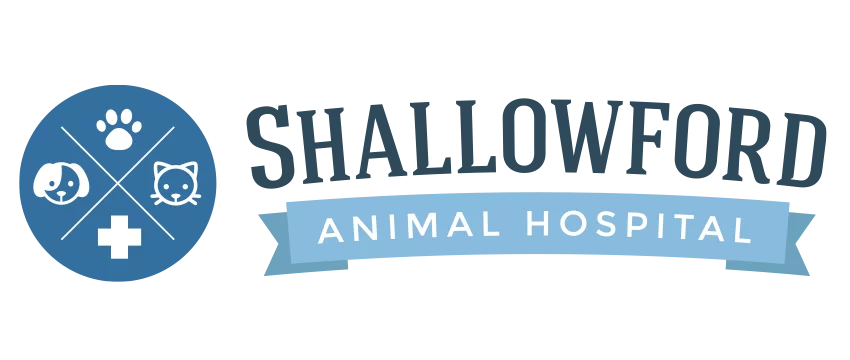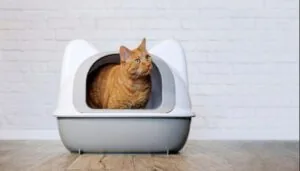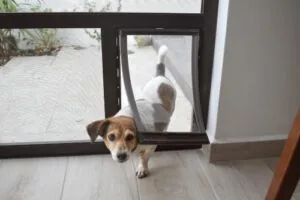Weight Loss Tips for Your Pet

Weight loss is a difficult thing for anyone, human or pet. However, just like in humans, being overweight can take years from your longevity and can cause serious medical conditions. Maintaining a good weight for your pet can be done but requires a commitment to a great weight loss program.
Before starting a weight program for your pet you should always consult with your veterinarian. There are multiple factors that could explain the weight gain. Always have your vet rule out some common diseases and disorders. Too many pets start on a diet and fail to lose weight simply because the diet was not the problem. Your veterinarian will perform diagnostics to rule out any medical issues that may be disrupting your weight loss program. Some common disorders associated with excess weight include:
- Heart Disease
- Osteoarthritis/Degenerative Joint Disease
- Hypertension
- Hypothyroidism
- Hyperadrenocorticism (Cushing’s Disease)
- Kidney Disease
- Breathing Problems
- Some Cancers
- Skin Conditions
Your veterinarian will also assist you on what your pet’s ideal weight is based on breed, age, and size. A safe weight loss program is 3-5% body weight loss per month. Veterinarians do have access to prescription diets that specialize in overweight management. Be sure to gradually transition to the new diet to prevent digestion issues.
Having a strict feeding schedule is important. Use measuring cups instead of a food scoop or drinking cup. Separate the daily amount into small, frequent meals. If more than one person feeds the pets, ensure everybody knows the correct amount and have a simple schedule to avoid overfeeding. If there are multiple pets in the household, try to feed pets separately and do not leave food out, as you won’t have control over who eats it. Treats are nothing but extra calories and can really harm your pets strict diet. Research treats to find the healthiest option for your pet. You can feed your dog carrots or green peas as a healthy low-calorie snack. Fight the urge to feed table scraps. Scraps are also not nutritional for your pets and can cause digestive problems and other ailments. Keep a written log of food intake (including all treats), exercise, and weekly weight. Weigh your dog weekly on the same scale at the same time of day. (Most veterinary offices will be more than happy to have you come in and use their scale.) Weigh your dog at least every 1 to 2 weeks. Using the recommended guidelines, overweight or obese dogs should lose about 1% to 2% of their body weight each week. If your dog is not losing weight, the daily calories may need to be restricted further. Also, make sure no one in the house is cheating by giving extra food or treats.
A very important key to weight loss is exercise. It is important to choose activities appropriate for your dog and does not overdo it. Start slow and work up to higher activity levels. Rest if you notice signs of fatigue, like heavy panting. In general, leash walking for 20-60 minutes a day, five days a week would be a great way to start. Swimming is also an excellent activity for obese dogs since it places less stress on joints. Exercise is a great way to give your dog attention and can be a substitute for treats. Exercise will help your dog build muscle, and increase mental stimulation, taking his focus away from food. Use toys, balls or sticks to encourage movement to chase or fetch. Increase the intensity and length of your daily walk. Use laser pointers to increase activity for overweight cats. By developing an exercise routine, you will improve your pet’s metabolism and overall health.
The secret to weight loss is a dedicated and committed family and a veterinary team that will help you achieve a healthy body condition that will ensure your pet’s long happy life. Once you reach your pet’s ideal weight, talk with your veterinarian to adjust his feeding amount to ensure your he stays at a balanced weight and doesn’t regain it. Remember, exercise needs to continue after the weight is lost or it will start to pack on again. Enjoy the longer life you will be able to have with your happier, healthier friend!
Share This Post
Recent Posts
About Shallowford Animal Hospital
Shallowford Animal Hospital and The Pet Spa at Shallowford are dedicated to the exceptional, compassionate care your pet deserves. Pets hold a very special place in our families, and we treat yours like our own.



